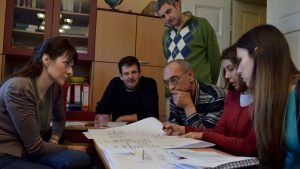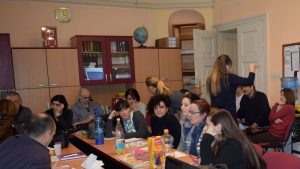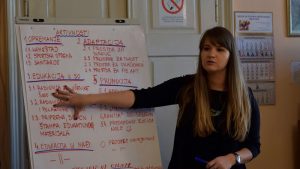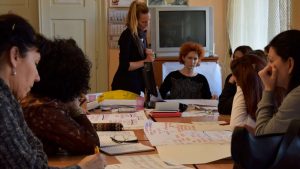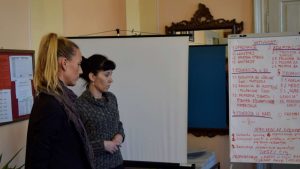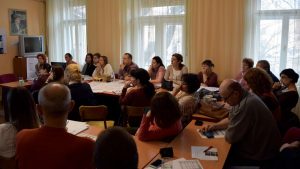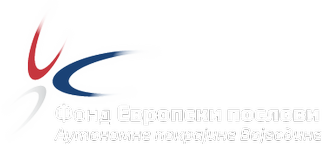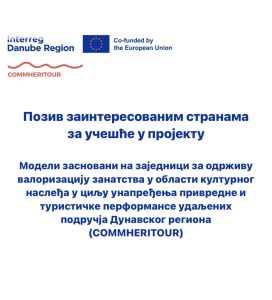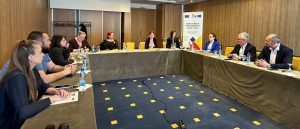Educational workers from Sombor on a training course on EU project development

The representatives of the European Affairs Fund of AP Vojvodina, Tijana Krstić Maravić and Tamara Glišić, have held a three-day training course “EU Funding Opportunities“ for the employees of educational institutions in the territory of Sombor.
The training was held at the School for Adult Elementary Education from 11th to 13th January 2016, for 30 participants from 6 institutions. The institutions whose employees attended the training are the following: School for Adult Elementary Education Sombor, “Veljko Petrović“ Grammar School, “Bratstvo-jedinstvo (Fraternity-Unity)“ Elementary School, “Laza Kostić“ Elementary School from Gakovo and Centre for Social Work of Sombor.
During the training, the participants learned about the opportunities offered by the European programmes with a focus on education. The presentation involved the programme Interreg IPA CBC Hungary-Serbia and the programme Interreg IPA CBC Croatia-Serbia, which were available for institutions of West Bačka District with their specificities and rules of procedures, and which were funded from the Instrument for Pre-Accession Assistance, a special EU instrument aimed at the states in the process of accession to the European Union. Moreover, the participants were also informed about the opportunities for applying for grants under the EU programmes, such as Erasmus+, the EU program covering education, training, youth and sport, and the programme Europe for Citizens, open for applications by civil society organizations and units of local authority.
In workshops, the participants developed project ideas in accordance with the EU priorities and four project ideas were designed related to the following themes: improvement of energy efficiency of public institutions, i.e. schools by introducing innovative technologies; prevention of the use of cigarettes and alcohol among students; improvement of social services for traveller children, as well as improvement of a range of sporting and cultural events for children in rural areas in the border region. On the last day, the budgeting of EU projects and the structure of the application form were presented.
During the training, the participants’ attitudes and skills were developed, so that they could take an active role in EU project development and formulate projects on their own that could contribute to a better work of educational institutions and welfare in local communities.
